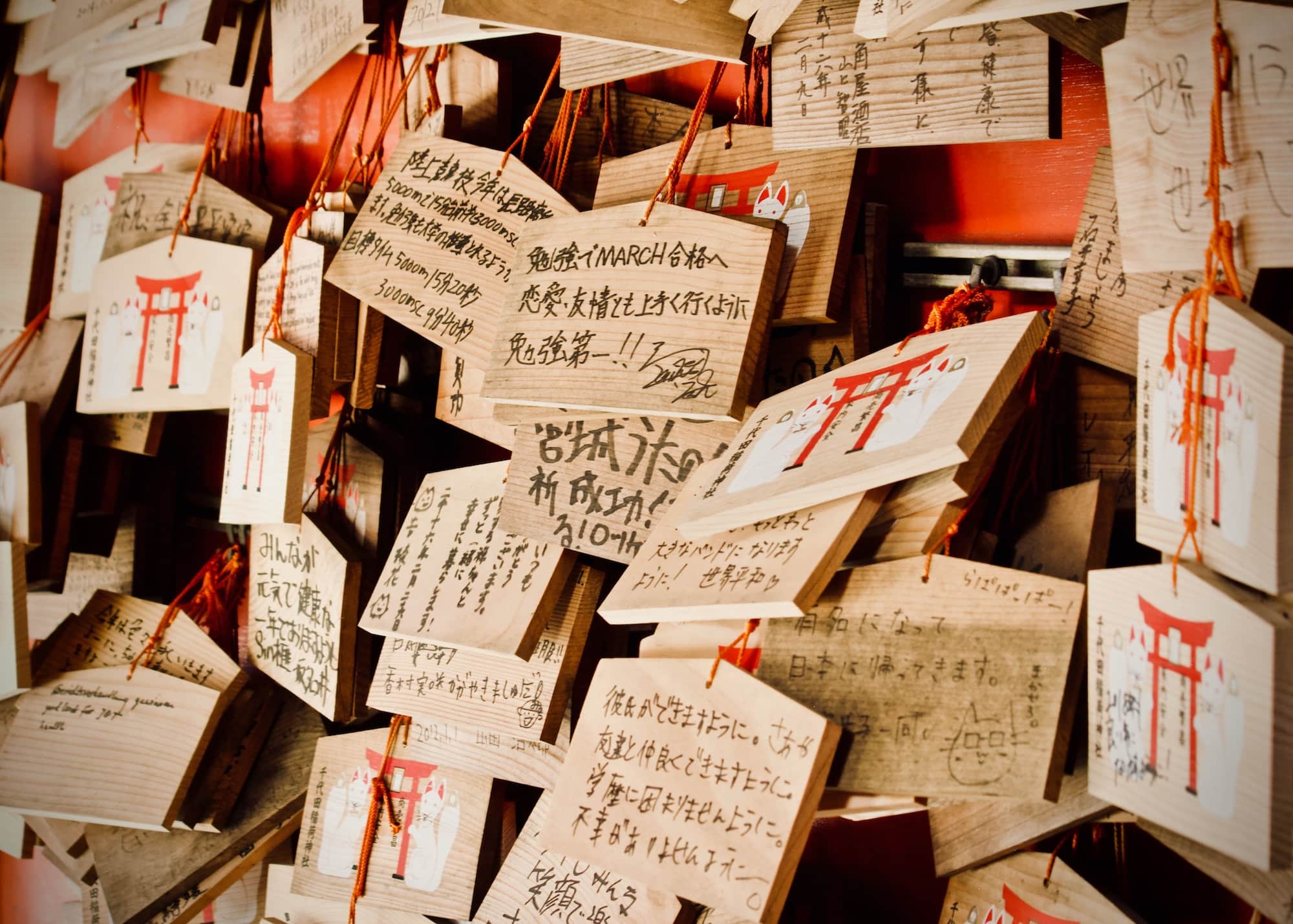No products in the cart.
March 12
Ki in Japanese – Some Common Uses of 気
0 comments
Using the word ki in Japanese is a daily occurrence. From greetings to how you feel about things, the word ki is versatile and used quite liberally.
In this, one of the unique phrases we cover involves the kanji 気 and 置けない together to mean something a bit unexpected. We look at a few phrases that use 気 in particular, and hopefully you come away with something useful.
A special shout out to Kumiko Sensei who wrote the explanations for us – she breaks it down step by step, and keeps it short and simple. The English is not a word-for-word translation of the Japanese, but basically carries the same meaning, so use it to follow along. If you find this content useful, check out the next article where we cover kikoeru vs. kikeru!Probably the most common use of ki in Japanese is in the word genki 元気. It can be used as part of a greeting to ask "how are you doing?", ogenki desuka? お元気ですか。
The word ki itself really refers to your "spirit" in the "air inside of you" or "energy" sense. No wonder it sounds so similar to the Chinese word qi (pronounced: chi) that refers to the same thing.
Almost any use of the word ki in Japanese is referring to air, energy, or a "feeling" in some way, so that should help give you some context when you encounter it in the wild.
Let's open with an example paragraph.

Note** To begin reading, download Rikaichamp (Firefox) or Rikaikun (Chrome) so when you mouse over kanji you get the reading and general meaning!
「気」には感情や性質という意味があります。
「気が抜ける」という表現をみてみましょう。試験が終わって気が抜けた、は試験が終わって勉強する気がしない、やる気がなくなった、という意味です。気が抜けたコーラ、はどんなコーラでしょう。この場合「気が抜ける」は味やにおいがなくなることを意味します。気が抜けたコーラはおいしくないですね。
The word 気 carries the meaning of something’s “quality” or “feeling.”
Let’s look at the phrase 気が抜ける. It means something like when you finish a test and you’re just done with that subject. You have no desire to keep studying it, and you don’t want to do anything on that subject anymore. Another way of using the same phrase is regarding a physical thing, like cola. 気が抜けたコーラ has lost its flavor and carbonation. Definitely not a delicious cola!
「気が利く」は細かいところまで気がつくという意味があります。「あなたは若いのにとても気が利くね。」は、あなたは若いのに気配りができる人だね、という意味です。また、「気が利く」にはしゃれているという意味もあるので、気が利いたお店、気が利いた帽子、のように使われることもあります。
The phrase 気が利く refers to (someone) who pays attention to really fine details. For instance, “you’re young, but you really pay attention, don’t you.” The phrase can also be used when talking about things like a store or a hat that has a great level of detail, so don’t be afraid to use it in situations where you want to convey a positive meaning.
「気の置けない友人」とはどんな人でしょう。この表現は日本人でも誤解している人がいるくらい、わかりづらい表現です。「気の置ける」は遠慮をしてしまうという意味なので、その否定形の「気の置けない」は遠慮しなくてもよい、つまりとても親しい関係だという意味になります。
So what type of person is a 気の置けない友人? This is actually a phrase that lots of Japanese people use incorrectly, so it’s a tricky one to use. 気の置ける means to hesitate, so when you change that to the negative 置けない, it means kind of like “without hesitation.” Basically, a 気の置けない友人 is a friend you are really close with; there’s no hesitation between the two of you.
Some other common uses of the word ki include:
kuuki 空気 – Air
haiki 排気 – Exhaust
genki 元気 – Doing well, healthy
ki ga suru 気がする – To have a feeling (about something)
ki ni shinai 気にしない – To not care
ki wo tsukete 気をつけて – To take care (be careful)
Did you like this article? Please share it around!
Tags
japanese
Never miss a post – let us slide into your inbox with hot articles.
Session expired
Please log in again. The login page will open in a new tab. After logging in you can close it and return to this page.